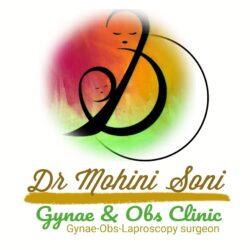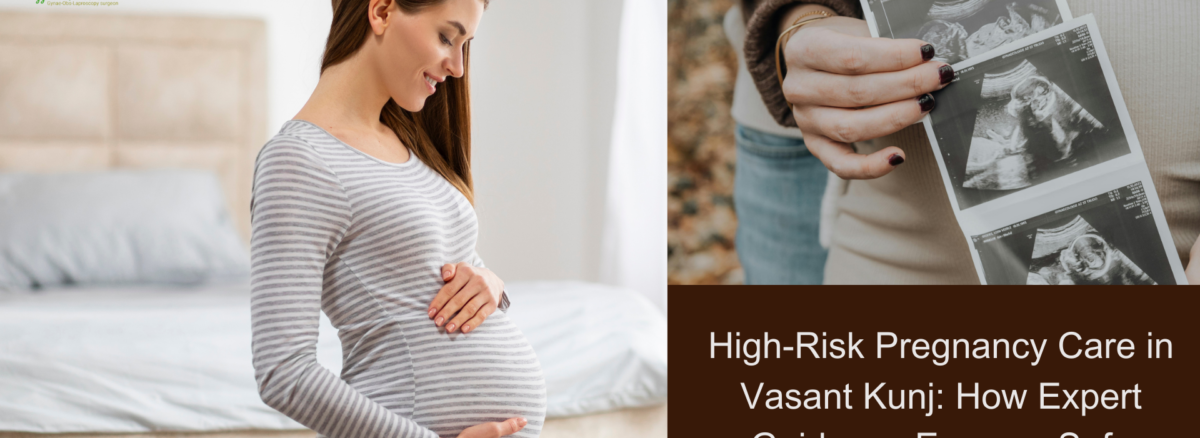Pregnancy is undoubtedly one of the most beautiful and transformative experiences in a woman’s life. But for some, it also brings extra worries and challenges. When a pregnancy is labeled “high-risk,” it means there are certain factors that might affect the health of the mother, the baby, or both. This calls for extra care, close monitoring, and expert guidance to ensure everything goes as smoothly as possible.
If you are in Vasant Kunj or nearby, you’re in good hands with experienced specialists like Dr. Mohini Soni. Her compassionate and advanced approach to high-risk pregnancies is designed to keep both mom and baby safe, while providing reassurance through every step of the journey.
What Makes a Pregnancy High-Risk?
There are many reasons why a pregnancy might be considered high-risk. It could be due to the mother’s age, especially if she’s over 35, or if she has pre-existing conditions like diabetes or high blood pressure. Other factors include carrying twins or multiples, complications in previous pregnancies, or certain lifestyle habits. Every woman’s situation is unique, and the key is to spot these risks early so that a personalized care plan can be created just for her.
How Does Expert High-Risk Pregnancy Care Help?
Dr. Mohini and her dedicated team begin with thorough prenatal screenings—blood tests, ultrasounds, and other gentle checks—to keep a close eye on the health of both mother and baby. With frequent visits, tailored lifestyle advice, and treatments customized to your needs, many potential problems can be nipped in the bud.
Thanks to advanced imaging and fetal monitoring, they can catch signs of any growth or placental issues early. But beyond the technology, Dr. Mohini’s warm support, open communication, and education help mothers feel confident, informed, and truly cared for.
Specialized Care for Common High-Risk Conditions
- Gestational Diabetes & Hypertension: Regular monitoring and careful medication management help reduce risks.
- Preterm Labor: Early detection of signs means doctors can act quickly to delay labor and give the baby the best chance.
- Placenta Previa & Placental Issues: Ongoing ultrasounds help plan the safest way to deliver your baby.
- Multiple Pregnancies: Extra care ensures the unique needs of twins or triplets are met with personalized attention.
Why Choose Care in Vasant Kunj?
Vasant Kunj is home to some of Delhi’s finest hospitals and healthcare providers, offering cutting-edge technology combined with kindness and personalized care. Dr. Mohini Soni is known not only for her deep expertise but also for her calm and empathetic approach, turning what could feel like a stressful journey into one that’s reassuring and hopeful. With ready access to multidisciplinary specialists and emergency facilities, this area offers the perfect balance of quality and convenience.
Conclusion
High-risk pregnancies demand much more than just medical expertise—they require kindness, patience, and a personalized touch. With the expert care provided by Dr. Mohini in Vasant Kunj, women can walk this path with confidence and peace of mind, knowing they have a trusted partner every step of the way. If you or someone you love is facing a high-risk pregnancy, don’t hesitate to seek timely, expert care—the earlier the support, the better the outcome.
Frequently Asked Questions
Q1: What makes a pregnancy high-risk?
Being over 35, existing health issues, multiple babies, or past complications can all make a pregnancy high-risk. Every case is different.
Q2: How often will I need check-ups with a high-risk pregnancy?
You’ll likely have more frequent visits and tests to carefully monitor you and your baby’s health.
Q3: Can I still have a healthy baby if my pregnancy is high-risk?
Absolutely! With close medical care and proper management, most high-risk pregnancies end happily.
Q4: Will I need to stay in the hospital regularly?
Not usually. Many high-risk pregnancies are managed through regular outpatient visits unless complications arise.Q5: What lifestyle changes might be needed?
You may need to adjust your diet, stress levels, and daily activities, depending on your condition.

